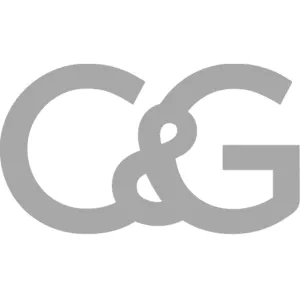- within Criminal Law topic(s)
- within Strategy topic(s)
- INTRODUCTION
Good evening, I'm Mark Cohen, a founding partner of Cohen & Gresser LLP, a criminal defense attorney, and a former federal prosecutor who served in the U.S. Attorney's Office for the Eastern District of New York. I want to begin first by thanking the Dean, Professor Christian Johnson, the faculty and the Widener Commonwealth Law School for inviting me to speak here today. It is an honor to be delivering the Justice William Strong lecture this year, particularly given the weight of Justice Strong's jurisprudence in criminal justice.
One of Justice Strong's most notable opinions is Strauder v. West Virginia, an 1880 case where a Black man was convicted in West Virginia by an all-white jury.1 Justice Strong, writing for the majority, held that a state law restricting juror eligibility to white men violated the Fourteenth Amendment because it deprived the defendant of "immunity from inequality of legal protection, either for life, liberty, or property."2 As this case and Justice Strong's other jurisprudence demonstrates, he was strongly committed to ensuring the fair and equal administration of justice. I submit that is something that prosecutors and defense attorneys alike strive to do in their day-to-day practice.
Toward that end, this lecture focuses on the ethical challenges that white-collar attorneys on both sides face. I will begin by addressing these issues from the prosecutor's perspective and then address some issues that come up on the defense side. I then look forward to addressing any questions that the Dean, Professor Johnson or the audience may have.
I should mention, however, a few disclaimers at the outset. To the extent my comments today touch on any matters I have worked on or clients that my law firm has represented, my comments are based only on what is in the public record and nothing considered confidential under the rules of professional conduct. Anything I say is as a private citizen making observations about the cases and what I think the impact and potential lessons learned were. I am in no way making any representations on behalf of my clients.
- ETHICAL CHALLENGES FACED BY PROSECUTORS
- Should Charges be Brought at All?
Starting with the prosecutor's perspective, ethical issues can arise from the very beginning of an investigation. For example, prosecutors may face fundamental questions such as (1) is the conduct at issue criminal, and (2) even if technically criminal, should charges be brought against the defendant?
These are key questions that can seem simple but turn out to be quite challenging. I think this clip from Seinfeld about what a business write-off is captures this issue in a humorous way.3 As I think is clear from the clip––neither Seinfeld nor Kramer has any idea what a write-off is, but Kramer is nevertheless convinced that the post office is doing them, and that they are permissible.
This is occasionally an issue in white-collar cases where there may be a concern that the conduct at issue violates the law even if one cannot pinpoint the exact regulation that prohibits it. White collar cases may be particularly susceptible to this issue. In contrast to so-called "blue collar crimes," like murder, arson or drug dealing, where the criminal nature of the conduct is obvious, white-collar cases often focus on a particular business practice that may seem aggressive or sharp, but that does not necessarily mean the practice is illegal. White-collar prosecutors must grapple with this question of whether the conduct at issue is actually criminal.
Take, for example, a series of prosecutions the United States Department of Justice (DOJ) launched in 2020 in connection with alleged price fixing in the poultry industry.4 The DOJ indicted the executives of several chicken producers, alleging that they had conspired to rig bids made to restaurants and grocery stores to keep prices high.5
This practice may or may not have been objectionable on business or social grounds. But, at trial, all the evidence showed was that the executives exchanged pricing information.6 Yet, under the law, that does not amount to an illegal agreement to fix prices. In fact, companies often try to suss out a competitor's pricing, so they can make their own internal pricing decisions. As long as there is no agreement with a competitor to keep prices at a certain level, there is nothing wrong with that. And ultimately this hole in the theory yielded limited results. While one company did plead guilty and another cooperated, five executives were acquitted of criminal antitrust charges.7 And the DOJ dropped charges against eleven other defendants—nine individuals and two companies.8
Footnotes
This article is an adapted transcript of remarks prepared by Mark S. Cohen and Sri K. Kuehnlenz and delivered by Mr. Cohen at the "U.S. Supreme Court Justice William Strong Lecture on Ethics and the Business Lawyer" at Widener University Commonwealth Law School on September 19, 2024. It has been lightly edited by the Widener Commonwealth Law Review. *Co-Founding Partner of Cohen & Gresser LLP, former federal prosecutor and seasoned defense counsel. ** Partner in Cohen & Gresser LLP's Litigation and White Collar practice groups.
1 Strauder v. West Virginia, 100 U.S. 303, 305 (1880).
2 Id. at 310.
3 Seinfeld: The Package (NBC television broadcast Oct. 17, 1996).
4 Matthew Perlman, Why DOJ's Chicken Price-Fixing Probe Fizzled Out, LAW360 (Oct. 19, 2022, 8:16 PM), https://www.law360.com/articles/1541179/ why-doj-s-chicken-price-fixing-probe-fizzled-out.
5 Id.
6 Id.
7 Id.
8 Id.
Please click here to read the full article.
2The content of this article is intended to provide a general guide to the subject matter. Specialist advice should be sought about your specific circumstances.



